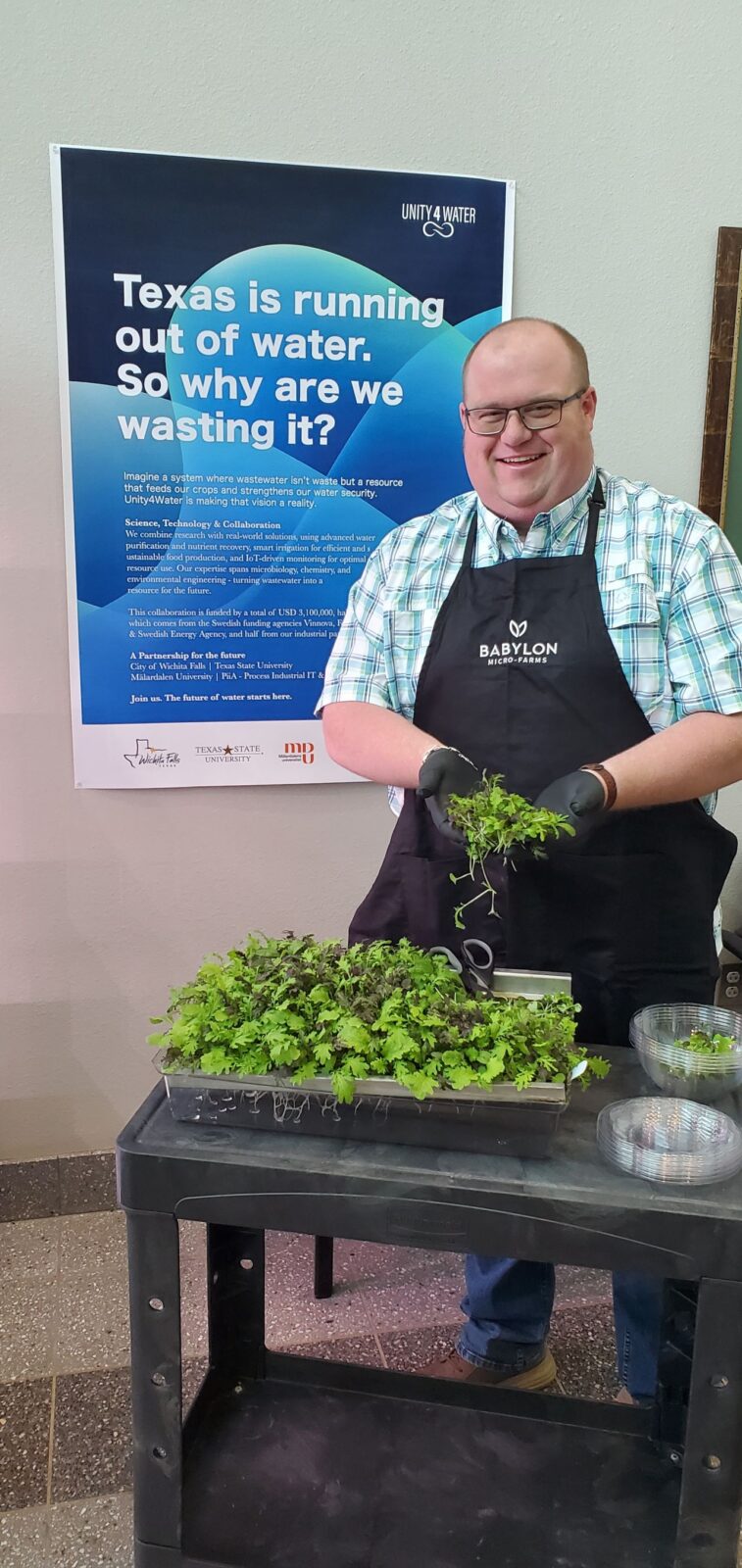Update from Wichita Falls: Recycled water and vertical farming in practice
Unity4Water continues to explore the intersection of water reuse and local food production, with promising results from its vertical farming pilot in Wichita Falls, Texas. A Babylon Micro-Farm system has been installed and is now functioning as a living lab, growing crops such as microgreens, lettuce, basil, and edible flowers—using different types of recycled water, including from indirect potable reuse.
The pilot is a collaboration between the City of Wichita Falls, Texas State University, and Mälardalen University in Sweden. The goal: to study nutrient recovery and sustainable crop production with recycled water in an urban setting.
– We’re growing food with recycled water. That’s not something you see every day. Our first harvest included spicy mix microgreens, and we’re now seeing basil, several types of lettuce, and even Sweet William flowers coming up. It’s exciting to see it working, says Hunter Adams, Water Source & Purification Superintendent at the City of Wichita Falls.
The system is part of a broader effort to develop water-smart societies, combining technical innovation with circular thinking.
– Vertical farming is not a new concept, but using recycled water to grow food is still a very new area of research. Our pilot in Wichita Falls is an important case in the search for smart, circular water solutions and food security, saya Monica Odlare, Professor at Mälardalen University and scientific lead for the pilot.
She adds:
– It’s also a great example of international collaboration where results can be transferred across borders.
This pilot follows earlier insights from Unity4Water’s Swedish partner Swegreen, where AI and data systems have been used to optimize vertical farming in urban settings. Together, these initiatives illustrate the project’s mission to test sustainable technologies in real-world contexts—across different geographies and water conditions.
